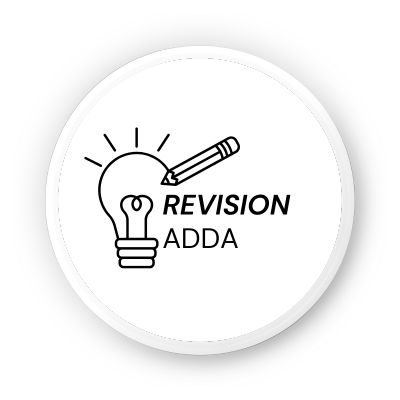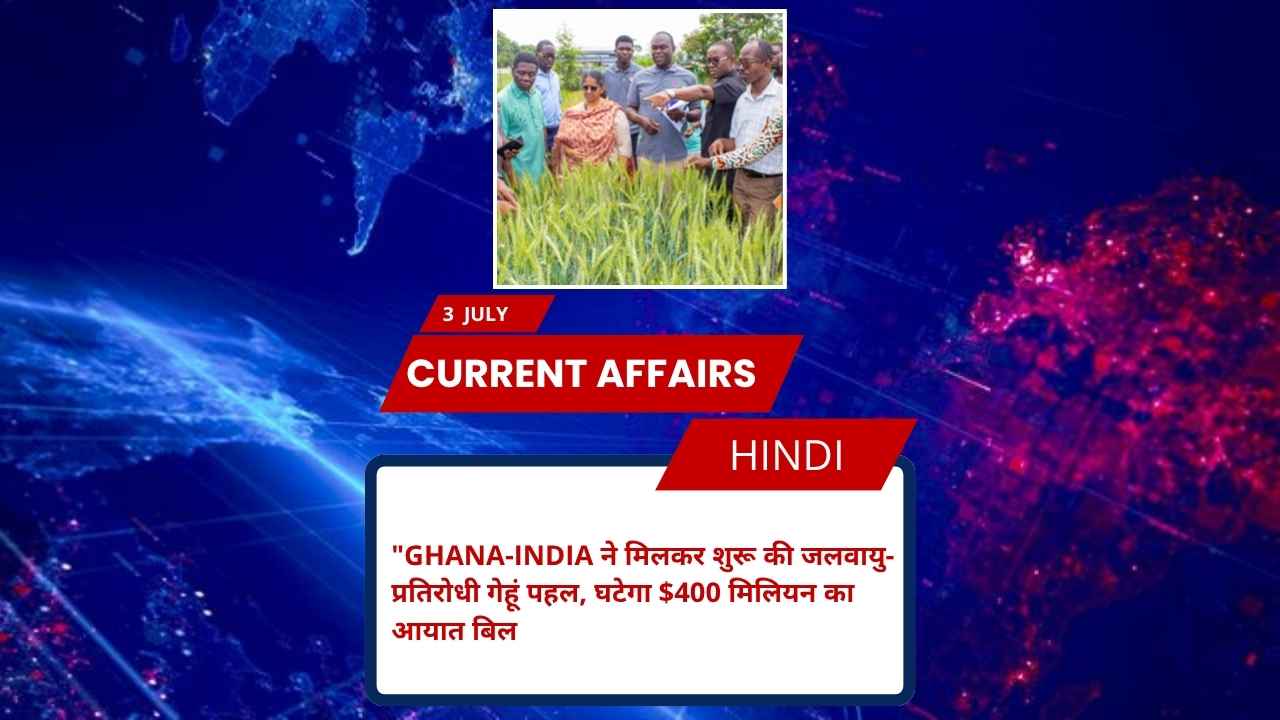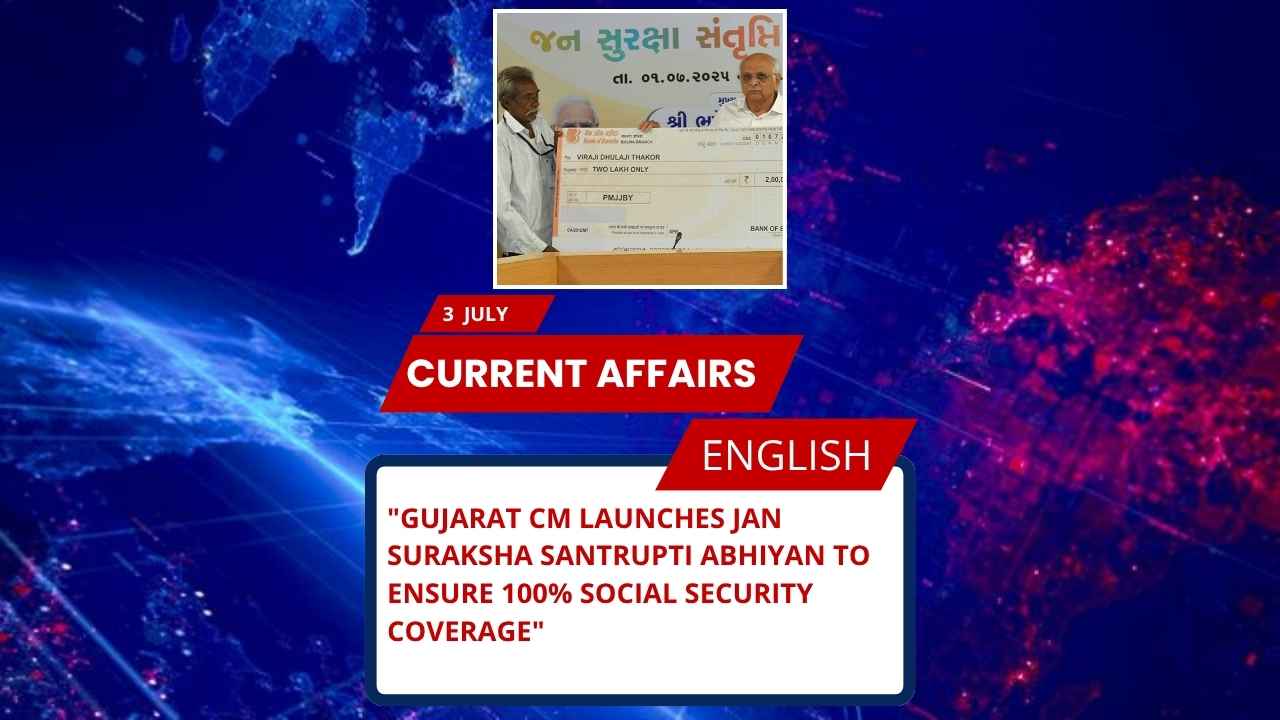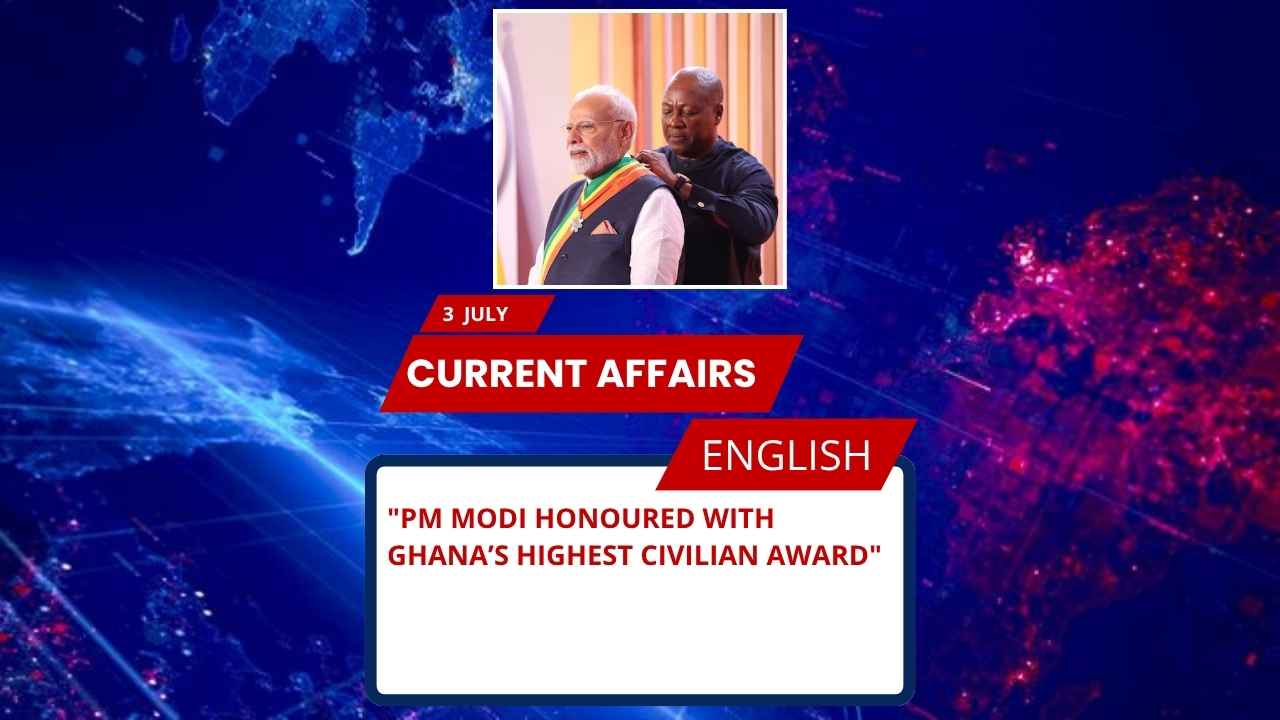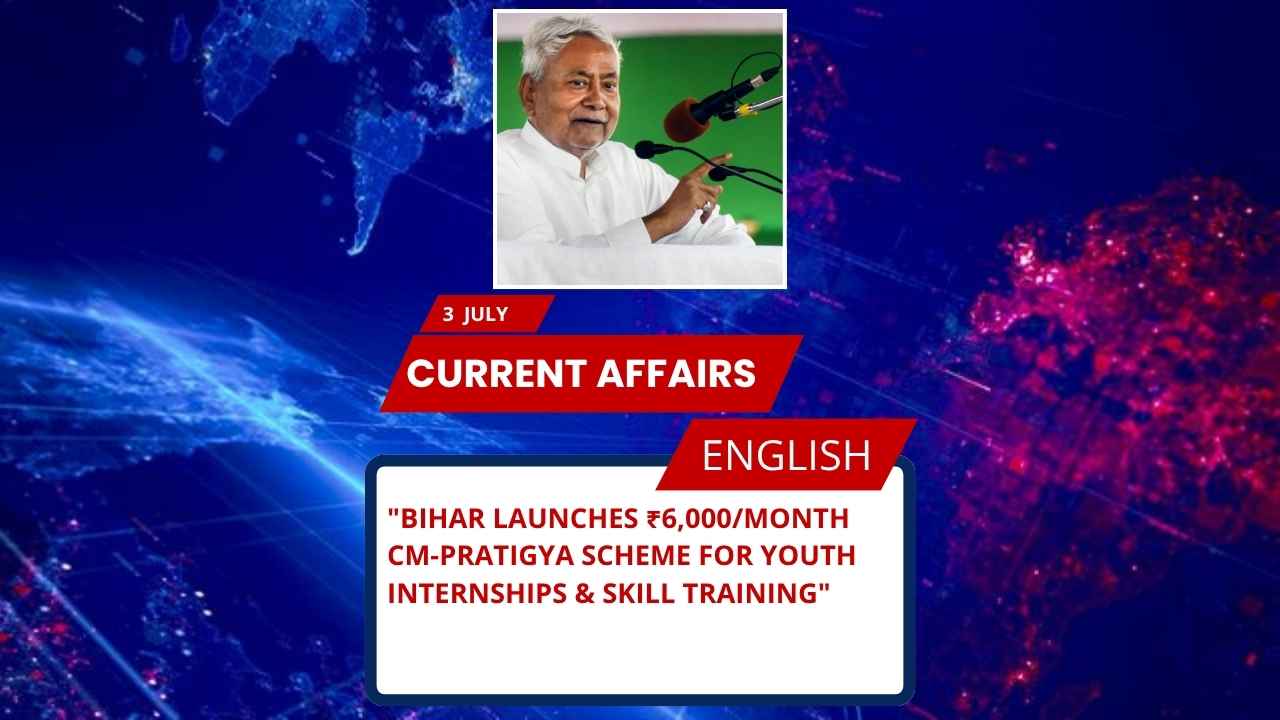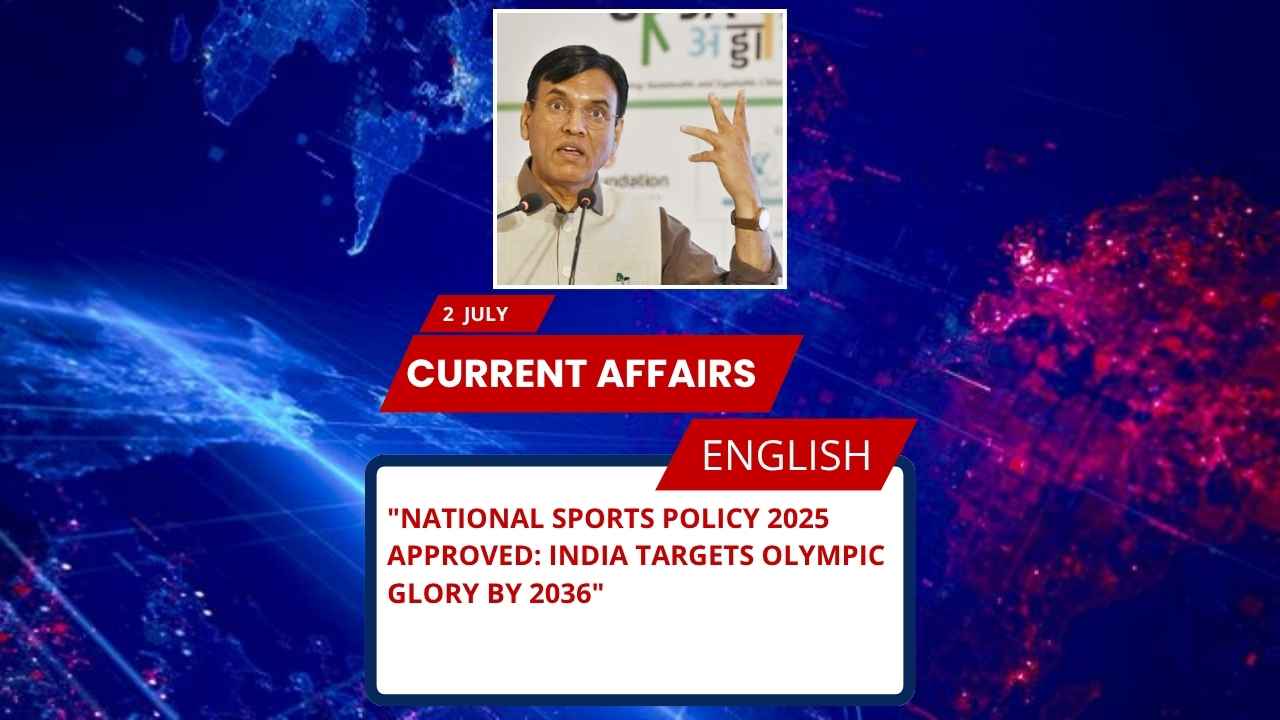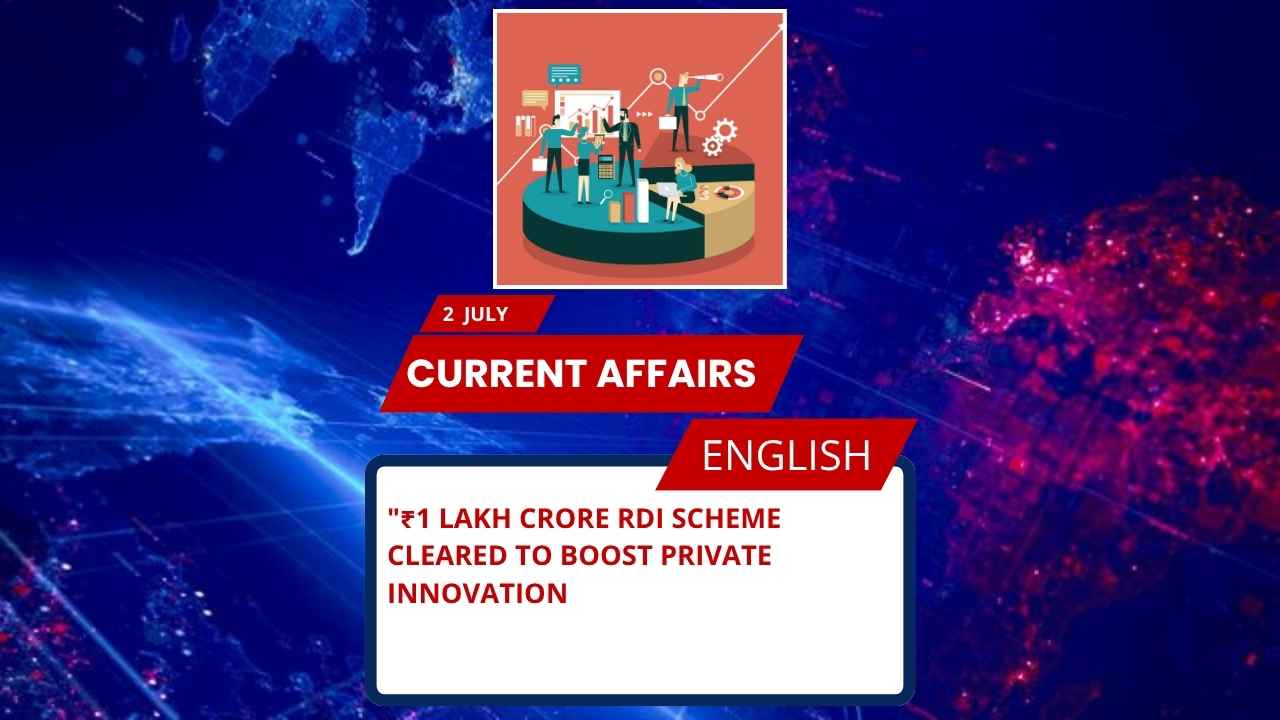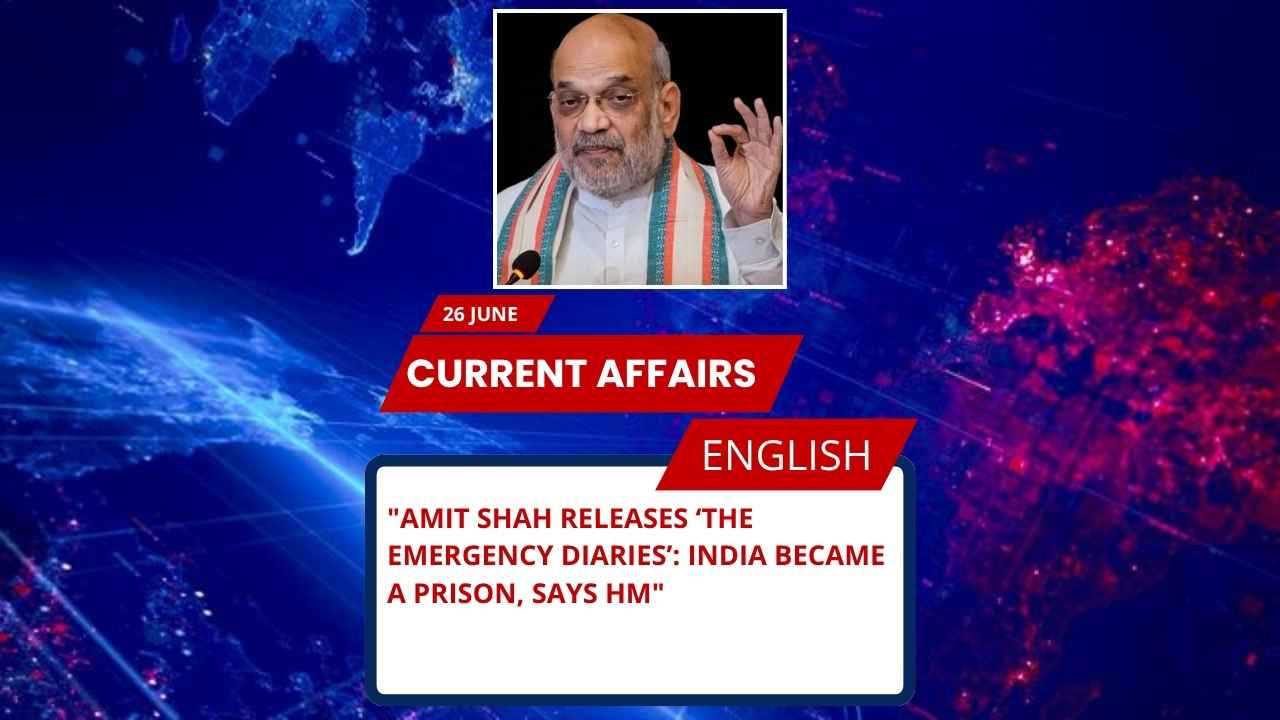
Key Points for SSC, UPSC & Other Govt Exams
- Book Launched: The Emergency Diaries released by Home Minister Amit Shah.
- Theme: Chronicles Prime Minister Modi’s role during the Emergency as a young RSS Pracharak.
- Context: Emergency was imposed by then PM Indira Gandhi on 25 June 1975.
- Claim: India was turned into a prison; civil liberties suspended.
- Highlights: Arrest of journalists, censorship of media, forced sterilisation, jailing of opposition leaders.
- Significance: Reinforces value of democracy and constitutional order.
- Emergency Period: From 25 June 1975 to 21 March 1977.
- Key Comment: “Emergency was one of the darkest chapters in Indian history.”
Complete Explanation
What is ‘The Emergency Diaries’?
Union Home Minister Amit Shah released a powerful new book titled The Emergency Diaries. It provides a detailed account of Prime Minister Narendra Modi’s journey and contribution during the Emergency period imposed in India between 1975 and 1977.
What is the Emergency?
- Declared by then PM Indira Gandhi citing internal disturbances.
- It suspended civil liberties, imposed press censorship, and arrested opposition leaders without trial.
- The Constitution was overridden, and fundamental rights were curtailed.
Modi’s Role According to the Book
- As a young RSS Pracharak, Modi actively participated in anti-Emergency movements.
- The book is based on first-person accounts of his colleagues and archival records.
- Modi saw it as a learning phase in defending democracy.
Amit Shah’s Statement Highlights
- “India was like a prison” during the Emergency.
- The regime banned songs, jailed leaders, and lied about threats to national security.
- The book highlights how India’s democracy was brutally crushed under a dynastic rule.
PM Modi’s Social Media Post Summary
- Called Emergency one of the darkest times in Indian democracy.
- Praised the resistance movement that helped restore democratic values.
- Recognised Emergency as a life-learning political experience.
Facts about Emergency Period (1975–1977)
- Duration: 25 June 1975 – 21 March 1977
- Imposed by: Indira Gandhi (then PM)
- Legal Tool: Article 352 of the Indian Constitution
- Reason Stated: “Internal disturbance”
- Real Motive (as per critics): To retain political power after a court verdict against Indira Gandhi
- Key Actions:
- Suspension of elections
- Censorship of media
- Mass arrests
- Forced sterilisation drive (led by Sanjay Gandhi)
Related Facts about Individuals and Organizations
Indira Gandhi
- Position: Prime Minister of India (during Emergency)
- Political Party: Indian National Congress
Narendra Modi
- Role During Emergency: RSS Pracharak
- Current Post (as of 2025): Prime Minister of India
RSS (Rashtriya Swayamsevak Sangh)
- Type: Voluntary nationalist organisation
- Founded: 1925
- Focus: Social and cultural development based on Indian traditions
Expected MCQs for Exams
Q1. Who released the book ‘The Emergency Diaries’ in June 2025?
A. Narendra Modi
B. Rajnath Singh
C. Amit Shah
D. JP Nadda
Answer: C. Amit Shah
Q2. During which period was the Emergency in India imposed?
A. 1973–1975
B. 1975–1977
C. 1980–1982
D. 1974–1976
Answer: B. 1975–1977
Q3. Which article of the Constitution was used to declare the Emergency in 1975?
A. Article 356
B. Article 360
C. Article 352
D. Article 368
Answer: C. Article 352
Q4. Who led the sterilisation drive during the Emergency?
A. Indira Gandhi
B. Sanjay Gandhi
C. Morarji Desai
D. Charan Singh
Answer: B. Sanjay Gandhi
Q5. What role did Narendra Modi play during the Emergency according to ‘The Emergency Diaries’?
A. Law student
B. Congress worker
C. Young RSS Pracharak
D. Police officer
Answer: C. Young RSS Pracharak
UPSC-Style FAQs with Model Answers
Q1. What were the constitutional and political implications of the 1975 Emergency in India?
Answer:
The Emergency of 1975 had severe constitutional and political consequences. Constitutionally, it undermined the sanctity of fundamental rights as Articles 19 and 21 were suspended. The judiciary’s independence was questioned after its controversial judgments (e.g., ADM Jabalpur case). Politically, it led to a public outcry and the eventual defeat of the Congress party in 1977. The event raised concerns about misuse of Article 352 and strengthened the resolve to uphold democratic values.
Q2. How did civil society and opposition parties respond to the Emergency?
Answer:
The Emergency sparked a widespread underground resistance. Opposition leaders, including Jayaprakash Narayan, Morarji Desai, and Atal Bihari Vajpayee, were imprisoned. Many activists went underground. The Rashtriya Swayamsevak Sangh (RSS) and other organisations provided logistical and ideological support. The 1977 elections saw the formation of the Janata Party government, highlighting the power of collective democratic resistance.
Q3. What are the lessons learned from the Emergency period for modern Indian democracy?
Answer:
The Emergency period serves as a reminder of the fragility of democratic institutions. It highlights the importance of judicial independence, free press, and civil liberties. The 44th Constitutional Amendment was introduced to prevent misuse of emergency provisions. Vigilant civil society and strong institutional checks are key to preventing authoritarianism in a democracy.
Q4. Examine the role of Narendra Modi during the Emergency based on recent publications.
Answer:
According to The Emergency Diaries, Narendra Modi, as a young RSS Pracharak, was actively involved in resisting the authoritarian regime. He assisted underground movements, helped mobilise protests, and distributed anti-government literature. His experiences shaped his political ideology and understanding of democratic resilience, which he often references as foundational in his public life.
